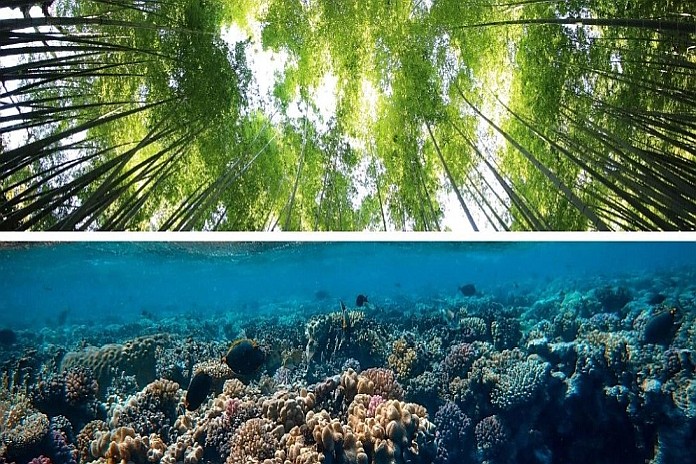CASTRIES, St Lucia – Small Island Developing States (SIDS) are exploring new ways to become more sustainable. The Organisation of Eastern Caribbean States (OECS) continues to drive innovation in sustainable development with its webinar series on a Blue Economy – using the ocean’s resources for economic growth, improved livelihoods and jobs, as well as the maintenance of ocean ecosystem health to ensure continued benefits.
Through its Caribbean Regional Oceanscape Project (CROP) the OECS Commission will host its final webinar in this series focusing on A Blue Economy for the OECS on June 24, 2020, as part of the seventh meeting of the council of ministers for environmental sustainability. The featured presenter will be professor Dickon Howell, director and founder of Howell Marine consulting and a visiting professor at Newcastle University School of Natural and Environmental Science.
This webinar focuses on what a Blue Economy means for the OECS, its importance and how it can be managed effectively to meet the triple bottom line of growing economies, protecting the environment, and advancing social wellbeing.
Heads of State, ministers, permanent secretaries and other senior decision-makers will be exposed to the concept of Natural Capital, what a Blue Economy could mean for the OECS and how a Blue Economy can be delivered through good ocean governance.
The first two webinars were held earlier in June. The first discussed Delivering Good Ocean Governance in the OECS while the second explored Looking after our oceans in the OECS. David Robin, OECS ocean governance and fisheries programme coordinator said the conversation around the Blue Economy is relevant and timely given the ramifications of the COVID-19 pandemic on world economies.
“As part of the ‘whole of government’ and ‘whole of society’ response in OECS Member States to the amplified risks and hazards, and unprecedented exposures and impacts caused the COVID-19 pandemic, a blue economy is a foundational building block to support recovery, resilience, reengineering and regeneration from our largest natural capital – our marine space.”
The OECS, as an inclusive institution, engaged policymakers, civil society organisations, and the public through this webinar series.





